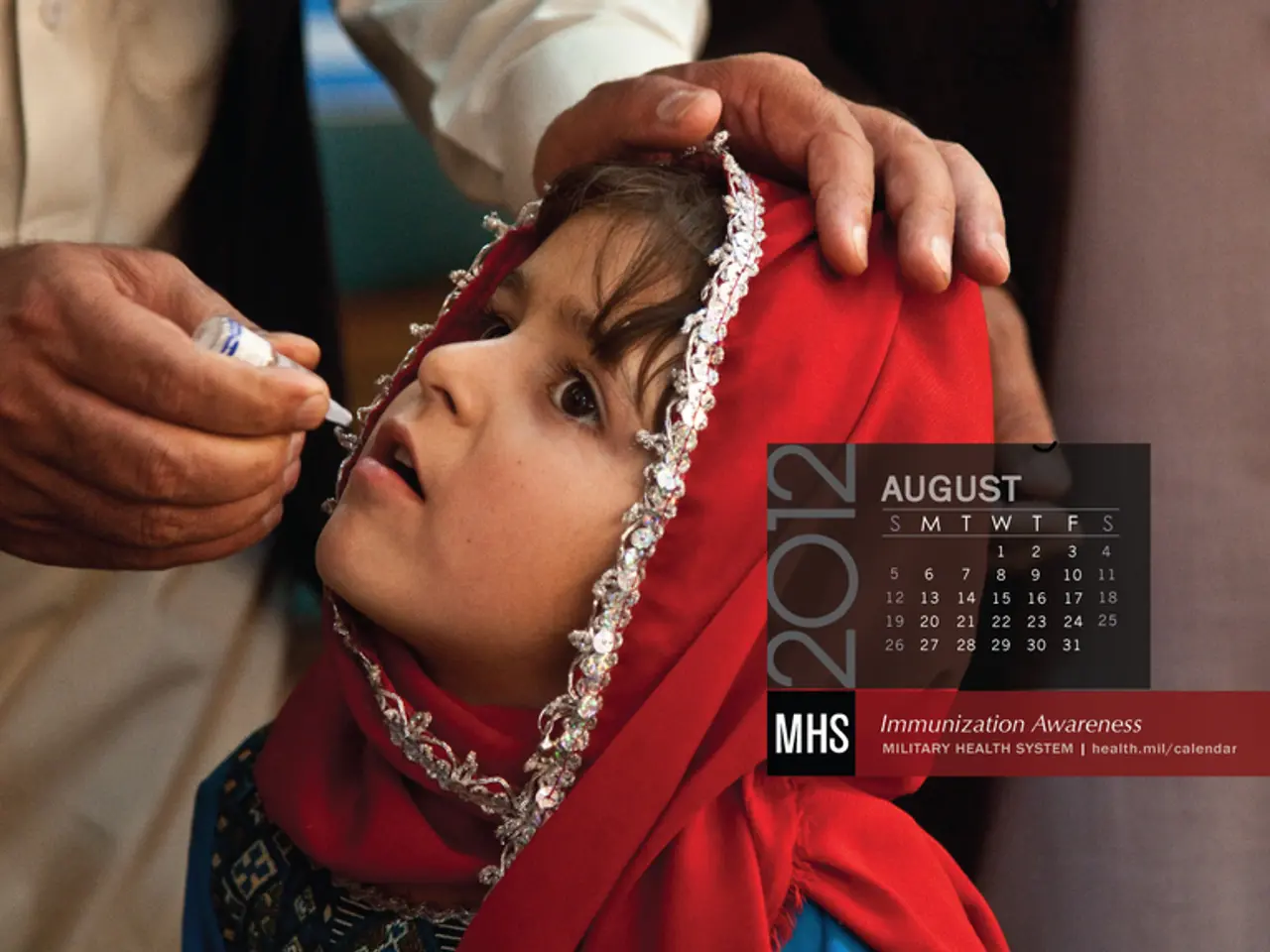Immunization Roadmap for Infants: Comprehensive Vaccination Guide for Nigeria's Newborns
Protecting Infants in Nigeria: A Comprehensive Vaccination Schedule
In Nigeria, a crucial initiative is underway to safeguard babies from various diseases during their first year of life. The Nigerian national immunization program offers vaccines free of charge at government hospitals and health centers, providing protection against tuberculosis, polio, hepatitis B, diphtheria, pertussis (whooping cough), tetanus, Haemophilus influenzae type b (Hib) infections, pneumonia, measles, yellow fever, and recently malaria.
The vaccination schedule is meticulously planned to ensure infants receive necessary protection at the right time. Here's a breakdown of the vaccines administered and when:
At birth - BCG (Bacillus Calmette-Guerin) to prevent tuberculosis - OPV-0 (Oral Polio Vaccine birth dose) - Hepatitis B (first dose)
Six weeks - Pentavalent 1 (Diphtheria, Pertussis, Tetanus, Hepatitis B, Haemophilus influenzae type b) - OPV-1 - PCV-1 (Pneumococcal Conjugate Vaccine)
Ten weeks - Pentavalent 2 - OPV-2 - PCV-2
Twelve weeks - Pentavalent 3 - OPV-3 - PCV-3 - IPV (Inactivated Polio Vaccine)
Fourteen weeks - The same vaccines from the previous rounds are administered
Six months - OPV vaccine - Hepatitis B (second dose)
Nine months - Measles Vaccine (first dose) - Yellow Fever Vaccine
Eleven-Twelve months - Measles-Rubella (second dose, depending on updated schedules)
A pilot malaria vaccine program started in December 2024 in some states for infants aged 5-11 months.
It is essential for parents to ensure their babies receive vaccinations on time to maintain optimal health and protect them from life-threatening diseases. A healthcare provider who specializes in pediatrics and has experience with vaccinations is crucial for addressing questions and concerns.
The Pentavalent vaccine covers five diseases: diphtheria, pertussis (whooping cough), tetanus, hepatitis B, and Hib. The PCV protects against pneumococcal diseases, which cause pneumonia, meningitis, and sepsis. The OPV is oral polio vaccine given at birth and multiple subsequent doses; IPV was introduced in 2015 to mitigate vaccine-derived poliovirus risks. BCG is given at birth to prevent tuberculosis. The measles and yellow fever vaccines are given subcutaneously at 9 months.
Vaccines go through rigorous testing and are proven to be safe and effective. Proper storage and administration of vaccines is essential for their effectiveness. Bringing someone for support during the vaccination appointment can be comforting.
Addressing common misconceptions surrounding vaccinations is crucial in promoting vaccine acceptance. It is vital to inform the healthcare provider about any allergies or previous adverse reactions your baby may have had to vaccines. Asking the healthcare provider to explain the potential side effects of each vaccine is important for being prepared.
[1] World Health Organization [2] UNICEF [3] Nigerian Immunization Technical Advisory Group [5] Nigeria Centre for Disease Control
- The Nigerian national immunization program, supported by organizations like the World Health Organization, UNICEF, and the Nigerian Immunization Technical Advisory Group, is focusing on providing a comprehensive vaccination schedule for babies in Nigeria.
- This vaccination schedule includes protection against diseases like tuberculosis, polio, hepatitis B, and many others, such as diphtheria, pertussis, tetanus, Haemophilus influenzae type b (Hib) infections, pneumonia, measles, yellow fever, and malaria.
- To ensure babies receive necessary protection at the right time, vaccines are administered at specific intervals - starting at birth with BCG and Hepatitis B, followed by a series of shots for various diseases throughout the first year.
- As parents, it's crucial to work closely with healthcare providers who specialize in pediatrics and have experience with vaccinations to address questions and concerns related to the baby's health and behavior.
- It's essential for the mental-health and wellbeing of both kids and parents that misconceptions surrounding vaccinations are addressed, and that providers are informed about any allergies or previous adverse reactions to vaccines.
- By ensuring babies receive vaccines on time, families can help protect their children's health and prevent life-threatening diseases, contributing significantly to health-and-wellness and the overall welfare of children in Nigeria.




